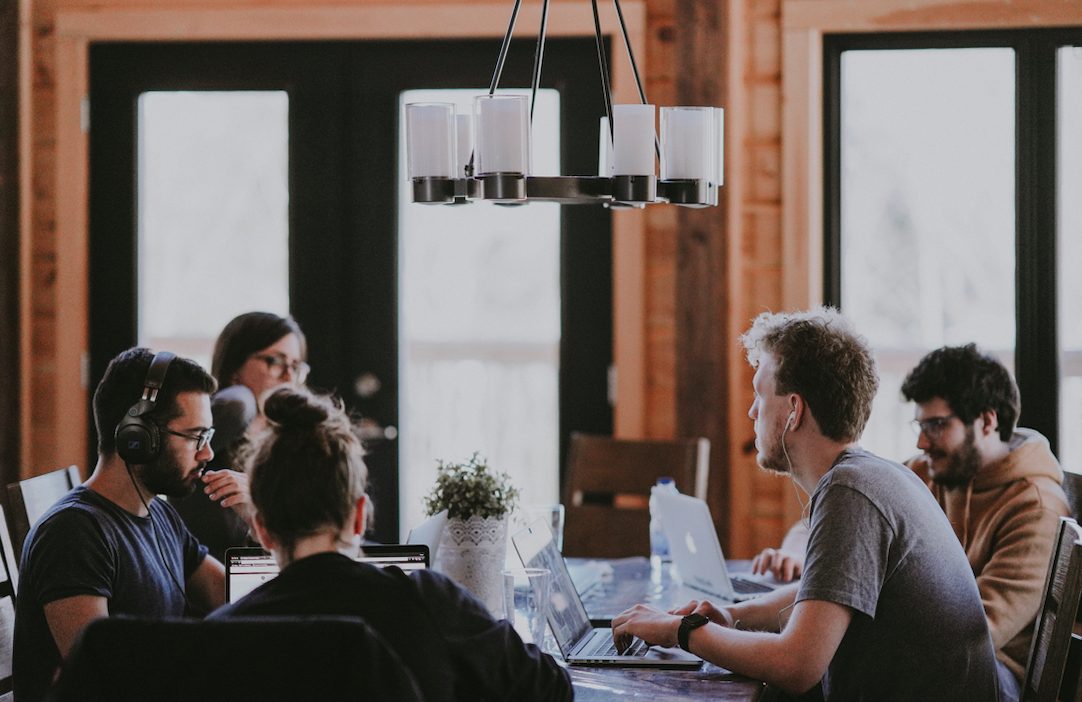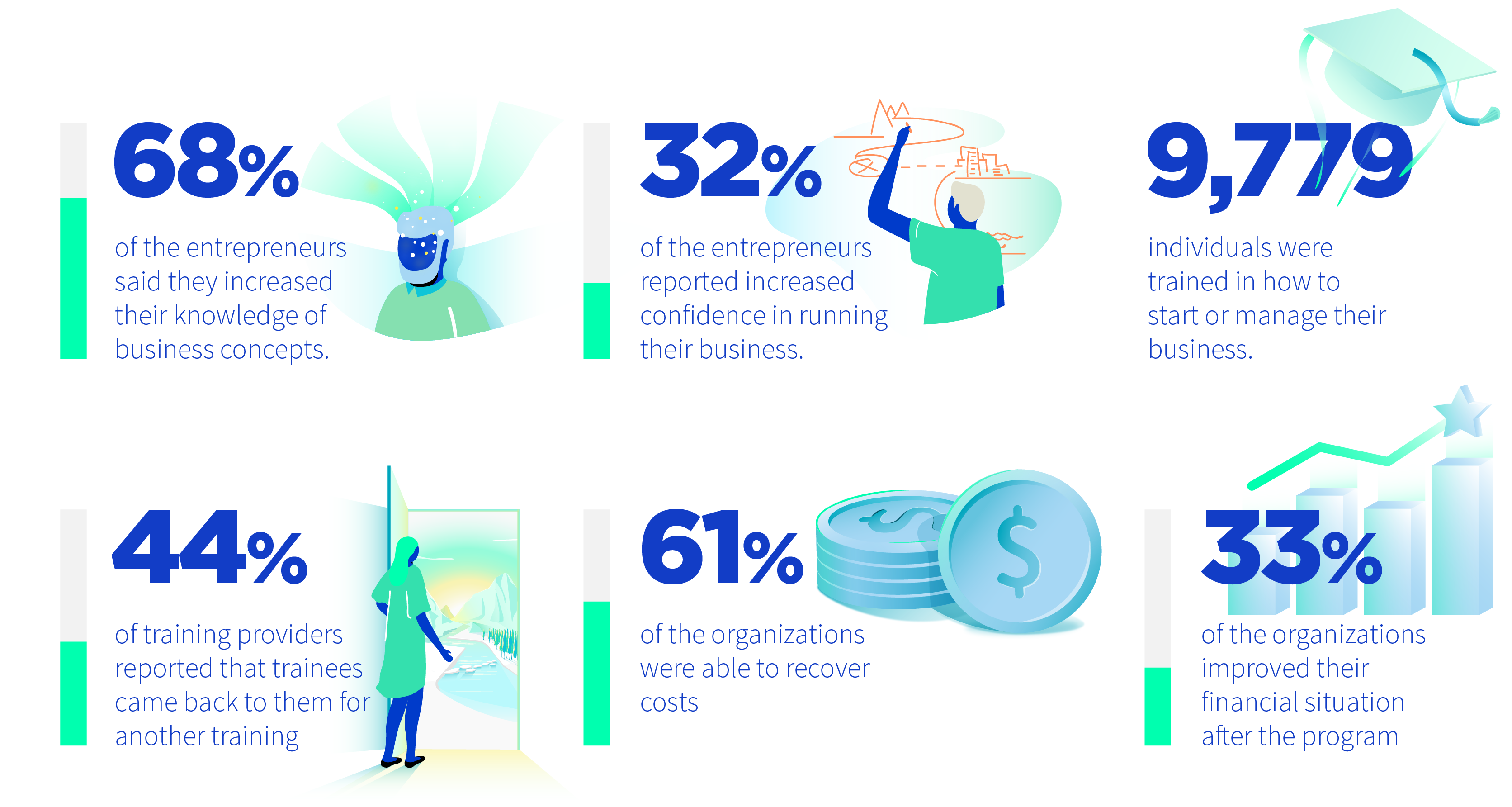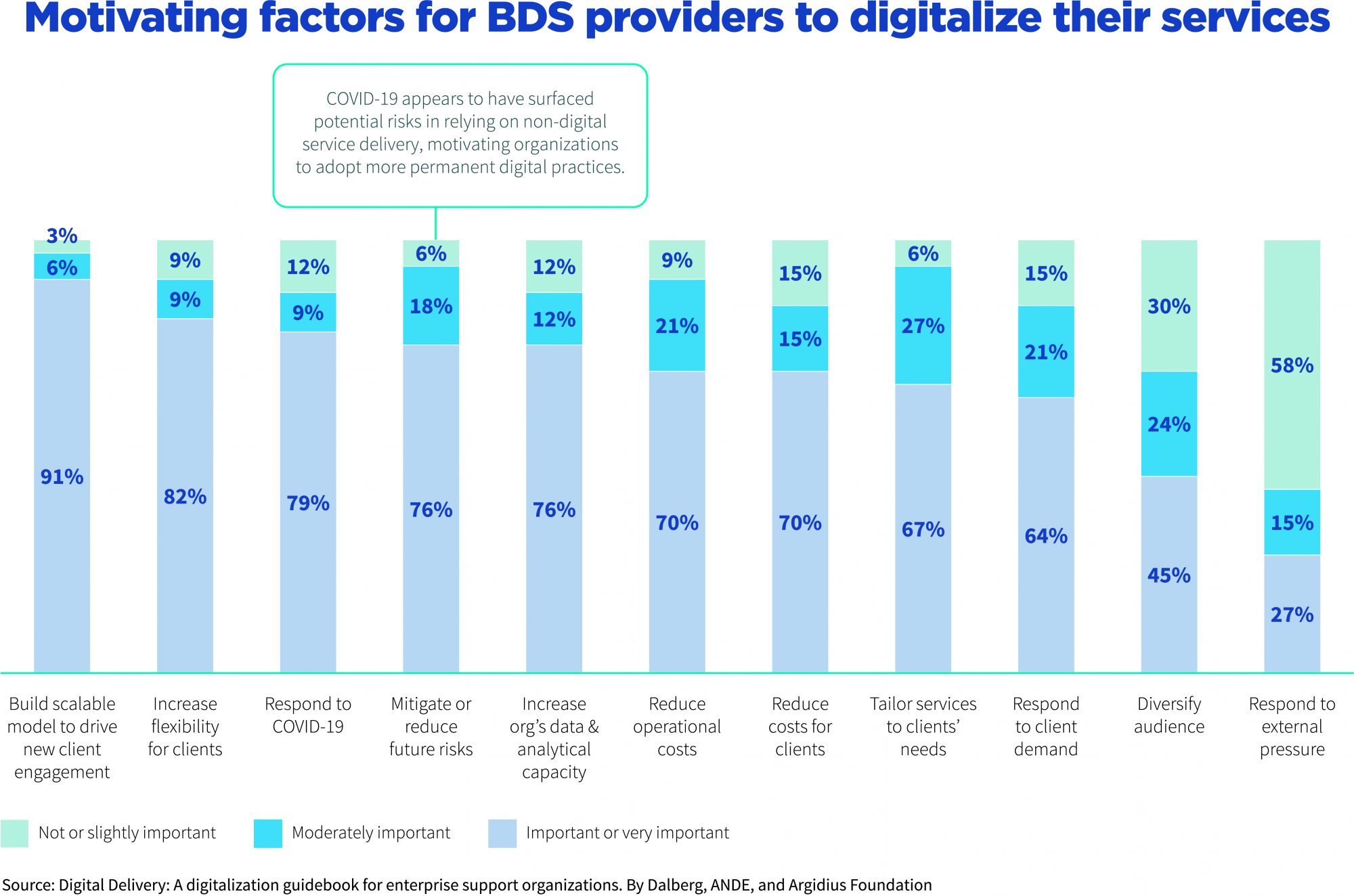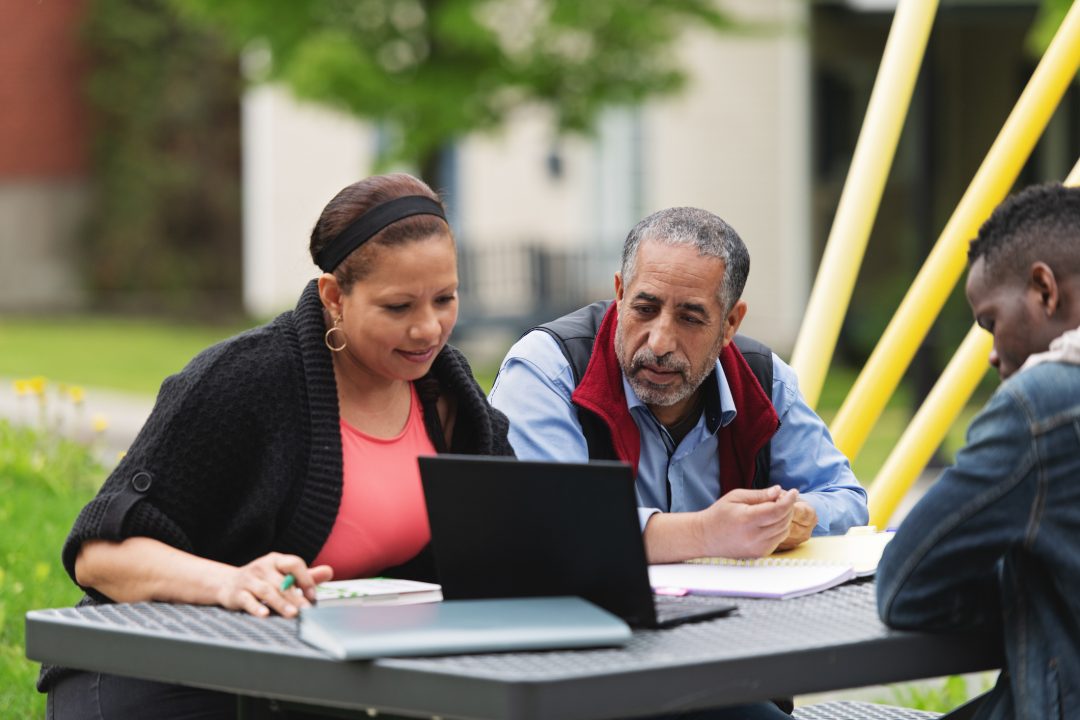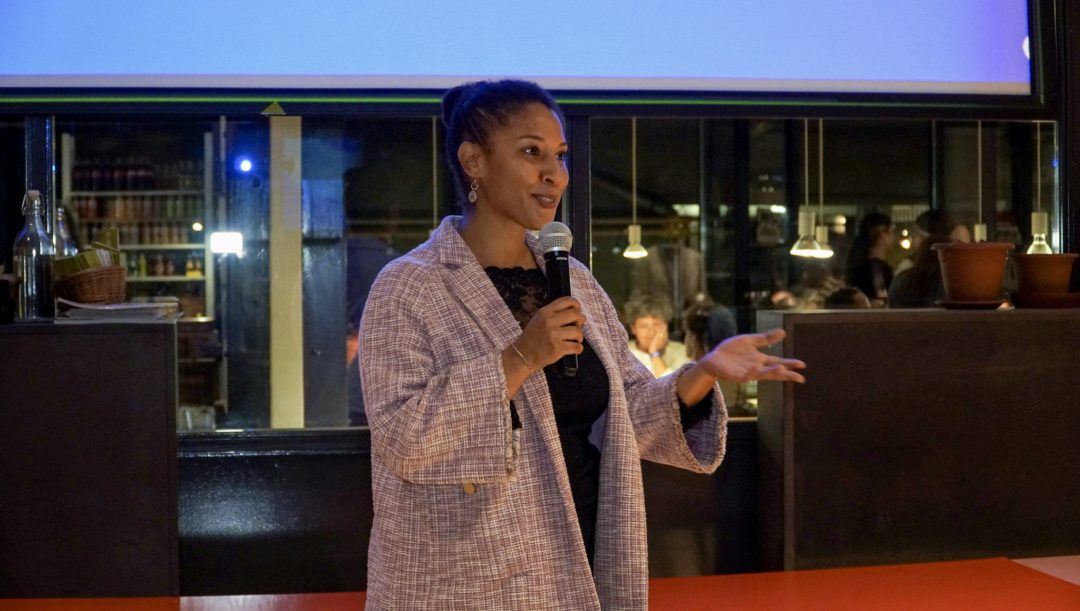A crisis of opportunities
By now we know that COVID-19 has hit Small and Growing Businesses (SGBs) the hardest while they generate almost 70% of jobs in Europe and a rising 80% in lower income countries playing a key role not only in employment generation but in overall economic growth.
According to the OECD, from May through October 2020, firms were hit hard with SGBs closure rates ranging between 20–40% across all regions. No wonder, risk aversion increased in some countries, like Spain for example, where there are significantly less businesses being created in 2021 than in the previous year with more people preferring stable jobs than taking the entrepreneurship journey.
In the current scenario where, according to the BBC, 195 million people globally will either lose their jobs or decrease their working hours substantially, society usually expects two things: To see how the world economy recovers in the second half of 2021 and how effective policy measures will be to boost the demand of labour.
There is however a third vehicle to save our economies and societies: Innovation-based entrepreneurship as a tool for job creation.
The COVID-19 pandemic has caused SGBs productivity to lower drastically and now founders are needing support in the form of financial and business development services more than ever.
Providing SGBs better access to finance, like working capital to help them with their short-term cash flow through grants, affordable loans or temporary tax exemptions is key for their survival.
At the same time regulations should be put in place to provide more support in the form of subsidy schemes that protect employment and provide social protection.
While at Bridge for Billions we consider this to be extremely important we also like to tackle problems at the root: creating the fertile ground for successful and resilient business development.
The pressing need in helping new business development for economic recovery has been recurrent for decades and after every crisis we’ve seen that helping those existing SMEs adapt to a new market is fundamental.
We must tackle the access to high quality entrepreneurial support for all types of entrepreneurs while providing individualized mentoring, proven business methodologies and resources to allow new businesses to grow resilient, and existing businesses to pivot fast.
What’s preventing the current entrepreneurship support model from achieving this?
This short article is a call to action to innovation decision-makers and policy makers, development practitioners, and the private sector presenting key evidence of how a different model exists to tackle current economic challenges through ESOs.
Long story short, Entrepreneurship Support Organizations (ESO)s, the structures expected to enhance business creation and survival are not surviving themselves.
In 2020, many ESO’s providers saw their ability to provide services to entrepreneurs and SGBs disrupted by the COVID-19 crisis. The Aspen Network of Development Entrepreneurs (ANDE), a global network of organizations that propel entrepreneurship in emerging markets based on the conviction that they will create jobs and produce environmental and social benefits, ran a survey to its +100 members globally and found that ESOs providers, particularly those based in emerging markets, faced severe liquidity crisis and had to stop their programs.
ANDE’s survey also showed that over half of the 488 SGBs in emerging markets supported between March and April 2020 rated technical assistance on accessing relief funds and pivoting their business model as “extremely” or “very” important to their survival and recovery during the pandemic.
Although access to support and resources indeed has become harder to get for entrepreneurs due to the global pandemic we have to accept that overall it is not a new problem. ESOs globally have a scalability issue that must be tackled at the root to really democratise high-quality entrepreneurial support.
If we were to tackle 3 things in terms of efficiency, this would be our best bet to recalibrate ESOs
1.Lower the high-dependency on subsidy and donor driven interventions
Regardless of their size, from a unit cost perspective, ESO’s costs per entrepreneur supported are very high.
Their annual fixed costs (rent and salaries) represent 70-80% of their annual budgets and their variable costs (hours of training from experts, mentors, events for entrepreneurs) are non-scalable, in other words, the more entrepreneurs, the higher their budgets.
Even if they want to increase the number of programs or entrepreneurs they support in a year to decrease their per entrepreneur costs, they are unable to do so because doing more programs would require hiring more people. Hence, this only further increases their budget and makes it even more difficult for them to secure the necessary scarce donor funding.
This donor to entrepreneur imbalance is so strong in Central America, that most ESOs are very dependent on public and international donors. Hence, they focus most of their resources in fundraising for their own sustainability, dedicating less than 20% of the resources to their core mission: supporting their entrepreneurs and strengthening their local ecosystems.
We should be aiming to create self-sustaining ESOs, not only driven by purpose but also by the cost-effectiveness of their business models to truly scale and democratise access.
A “train the trainers” approach has proven successful in many markets where ESOs learn how to shift their operations towards a more efficient model and prove to increase their capacity and the quality of their product portfolio.
One clear example of this is one of the many initiatives from The International Labour Organization, Myanmar Entrepreneurship and Micro, Small & Medium Enterprise (MSME) Support created with the intent to create a market where local support organizations could earn revenue from offering business support services.
Incentives for BDS service providers included increased capacity, expanded product portfolio and access to new markets leading to more revenue for the organizations.
The project started with market assessment to understand the problems impeding SGBs growth and aimed to support them in both urban and rural areas to start-up and grow through business management training. By their completion in October 2017, these projects had trained a network of +1,000 trainers via +400 partners organizations.
These are some of the outcomes of the “train the trainers” approach tried in Myanmar for Entrepreneurs:
This led to the creation of 1,234 new businesses, 49% created by women. Overall 7,387 jobs were created, and 61% of those were women by early 2017. These are well beyond the project target of training 4,000 entrepreneurs, starting 1,000 businesses, creating 3,800 jobs and improving 1,500 businesses.
Don’t get us wrong: A BDS market facilitation approach does not imply a complete rejection of subsidy. It means creating a model where subsidy is cost effective and scalable
2. Change antique teaching methods
ESOs have a method much like the current education system where entrepreneurs listen to what other people have done in their journeys or how others have approached problem solving while the most efficient learning method for entrepreneurs has shown to be “doing”.
That’s why our method is based on creating an entrepreneurship learning experience where founders are “pushed” into the uncertainty and ambiguity of launching a business in a structured space and with the right support.
If done in a disorganized and unengaging way, entrepreneurs tend to jump from one YouTube video, to a checklist, to a canva and onto a white paper, getting external input from one person to the other. This messy and superficial path overcomplicates the process and reduces the chances of the entrepreneurs seeing it through.
While this is not the reality at a traditional ESO, it is also not structured under a proven business methodology causing entrepreneurs to only function productively while they’re part of a program.
This is in fact creating new businesses but, are these resilient business models able to withstand a pandemic?
Research has shown that individual mentoring and individualized consulting is more effective. The blocker is that it has also proven to be more expensive. So ESOs must hack the way to provide one-to-one support.
At Bridge for Billions, we provide the dotted line and interactive pathway so that entrepreneurs can build their business from the ground up in a structured way through our 8 online business modules, we onboard volunteer mentors to give concrete feedback through the comment section on the platform and during weekly one-to-one sessions with their matched entrepreneur so that they feel valuable and heard.
3. Most ESOs still work with complex offline processes and in-person focus
Most ESOs favor in-person events and offline teaching as old-school networking, and if we’re being honest, a bit of ego-boost plays a key role in the way most ESOs function operationally.
The fact that we’re prioritising picture-day on top of innovation for the sake of equality and inclusion is hurting not only the entrepreneurship ecosystem but the overall economy and society on many different levels.
To say it as it is:
Entrepreneurs who are not your typical extroverted, silicon valley, well-connected, ivy league white male are organically rejected from the current model and if we don’t focus on the cost-efficiency this will continue to happen.
How can the delivery and uptake of Entrepreneurship Support Organizations (ESOs) be recalibrated to not only survive but truly support SGBs?
On top of these three main challenges the entrepreneurship ecosystem faces and that we should tackle together as ecosystem builders, ESOs themselves have some introspective work to do.
The pandemic and its economic impact will require that Entrepreneurial Support Organizations are optimised and some might even need to be reborn to prepare for what’s next.
Looking ahead, many organizations must determine what role digitalization will play in their approach in a post-COVID-19 world. The Argidius Foundation surveyed its members and found that 91% rank as “important” or “very important” building scalable models to drive new client engagement as a motivating factor to digitize their services.
These are the 6 questions that every ESO should be asking internally:
Have new needs surfaced among entrepreneurs that are not currently being served?
Have ESOs in your region closed their doors, leaving some entrepreneurs without support?
What is the ratio of “applicants to accepted entrepreneurs” in your ESO and what can be done to improve it so more entrepreneurs access your support?
How will virtual delivery impact your ESO?
With reduced funding how will you effectively serve new member segments and provide new services?
What’s the profile of the entrepreneurs being accepted in your programs? What’s the profile of the entrepreneurs not accepted?
Why we care
We are creating a movement to democratize access to entrepreneurship support globally and last year we decided to take our mission all the way to Latin America.
Despite the high levels of early-stage entrepreneurial activity in the region, most entrepreneurs still lack access to business training and personalized mentoring.
Most local entrepreneurship support programs have a very limited capacity, funding struggles, and are unable to meet the huge existing demand from Latin American entrepreneurs. Organizations face high operational costs per entrepreneur and hence they need to be very selective with whom they support.
The reality of the Latin American ecosystems is that most programs end up supporting a very privileged group of entrepreneurs who are predominantly male, white, english-speaking and educated in private universities.
The lack of resource-efficiency, inclusivity and meritocracy is systematically rejecting many purpose-driven founders who have the potential to become a lever of growth for the Latin American societies and economies.
Our objectives in Latin America for the next 3 years:
- Support +1,900 entrepreneurs
- Create +60 innovation and entrepreneurship programs
- Generate +1,240 jobs within the next 3 years.
- Find 11 Bridge for Billions Fellows, social enterprises that will receive $50K of seed capital
Every seed deserves good soil to grow
Our economies and societies are at a point where the stakes are high for not betting on creating new and decent job opportunities and that doesn’t always mean directly supporting the entrepreneurs, but those supporting them.
Entrepreneurs have proven to be key actors in the transformation of low-income societies characterized by low productivity and often subsistence self-employment into dynamic economies characterized by innovation and a rising number of well-remunerated workers.
Both the ILO Program in Myanmar and our initiatives in Latin America are evidence that show that even while charging for services offered in development programs, it is possible to reach scale and allow for diversity in entrepreneurship.
If we leave it all to subsidy, long-term sustainability is jeopardized, as services tend to stop with the end of the project and the associated funding.
If you want to build a new self-sustaining ecosystem contact us below to create your own innovation program. Let’s tackle economic recovery while focusing on entrepreneurship and innovation together.
